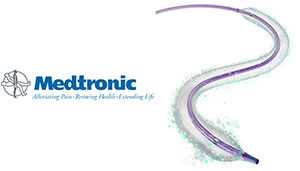Medtronic (NYSE:MDT) touted data for its In.Pact Admiral drug-coated balloon in patients with peripheral arterial disease. The company presented outcomes from its In.Pact Global study patient cohorts in Asia and Belgium, concluding that its DCB demonstrated consistent outcomes across patient populations.
(NYSE:MDT) touted data for its In.Pact Admiral drug-coated balloon in patients with peripheral arterial disease. The company presented outcomes from its In.Pact Global study patient cohorts in Asia and Belgium, concluding that its DCB demonstrated consistent outcomes across patient populations.
More than 96% of the 114-patient study group in Asia achieved positive outcomes, which was consistent with results from the full global study cohort. Low clinically-driven target lesion revascularization at 1 year, nearly 4%, was also in line with the results of the 1,406 patients in the global study group.
Belgium was the 1st country to enroll patients in the In.Pact study. After 1 year, the rate of clinically-driven target lesion revascularization was consistent with the global group. Nearly 91% of patients achieved positive outcomes, meeting the study’s primary safety endpoint.
“The results from these two patient cohorts in Asia and Belgium support the unparalleled clinical evidence demonstrating the consistency, durability, and safety of the In.Pact Admiral DCB,” Mark Pacyna, general manager of Medtronic’s peripheral business, said in prepared remarks. “We continue to invest in the In.Pact clinical program to provide clinicians the broadest possible set of outcomes and measures of clinical rigor among multiple patient populations. We are pleased to present these data and further the body of clinical evidence supporting In.Pact Admiral as a frontline treatment option globally.”
The company touted its In.Pact global study as the largest and most rigorous post-market evaluation of a peripheral artery intervention, with 1,406 patients enrolled in the full clinical cohort.
The In.Pact Admiral DCB is an endovascular therapy indicated for percutaneous transluminal angioplasty of restenotic legions in superficial femoral or popliteal arteries.
Medtronic said yesterday that the 1st procedure using the Visualase MRI-Guided laser ablation system has been performed in its SLATE clinical trial evaluating the device in patients with drug-resistant mesial temporal lobe epilepsy.
The trial is slated to enroll 120 patients with MTLE, the most common form of epilepsy. Researchers will observe the patients for 12 months following the procedure and evaluate them for freedom from seizures, quality of life, adverse events and neuropsychological outcomes.
Also yesterday, the U.S. Internal Revenue Service reportedly agreed to drastically slash the amount it claims Medtronic (NYSE:MDT) owes on loans between its subsidiaries, from a potential $1.36 billion to just $14 million.

